How To Cure Cystitis / UTI
How To Cure Cystitis / UTI –
Cystitis and Urinary Tract Infections :
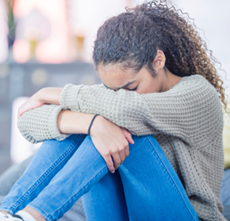
Cystitis versus UTI – What’s The Difference?
If you’re experiencing pain or discomfort while urinating, you may be suffering from cystitis or urinary tract infection (UTI). These conditions are quite common, especially in women. Cystitis is an inflammation of the bladder, while UTI is an infection that can occur in any part of the urinary system, including the bladder, ureters, kidneys, and urethra. Here we’ll look at How To Cure Cystitis / UTI.
The most common cause of cystitis or a UTI is bacterial infection, which can be easily treated with antibiotics. However, if left untreated, these conditions can lead to more serious health problems, such as kidney damage or sepsis. Symptoms of cystitis and UTI include frequent urination, pain or burning sensation while urinating, and cloudy or strong-smelling urine. If you experience any of these symptoms, it’s important to seek medical attention as soon as possible.
Fortunately, there are steps you can take to prevent cystitis and UTI from occurring in the first place. Drinking plenty of water, avoiding irritants like caffeine and alcohol, and practicing good hygiene can all help reduce your risk of developing these conditions. With proper care and treatment, you can manage cystitis and UTI and maintain good urinary health.
Overview of How To Cure Cystitis / UTI
If you have ever experienced the uncomfortable symptoms of cystitis or UTI, you know how important it is to understand these conditions. Cystitis is a type of UTI that affects the bladder, while UTI can refer to infections that occur anywhere in the urinary tract, including the bladder, urethra, kidneys, and ureters.
Both cystitis and UTI are caused by bacteria, although other microorganisms like viruses, fungi, and parasites can also cause UTIs. In most cases, bacteria from the intestine or vagina are the culprits behind these infections.
Symptoms – How To Cure Cystitis / UTI
Symptoms of cystitis and UTI can include a strong, persistent urge to urinate, pain or burning during urination, passing frequent small amounts of urine, blood in the urine, and pelvic discomfort. Women are at greater risk of developing UTIs than men, and certain factors like sexual activity, menopause, and urinary tract abnormalities can increase the risk of developing these infections.
If you suspect you have cystitis or UTI, it is important to seek medical attention right away. Your doctor can perform tests to confirm the diagnosis and prescribe antibiotics or other treatments to help clear the infection. Drinking plenty of water, avoiding irritants like caffeine and alcohol, and practicing good hygiene can also help prevent these infections from occurring.
RELATED ARTICLE: Female Infertility: Causes and Cures
Causes of Urinary Tract Infection: What causes cystitis?
Urinary tract infections (UTIs) are commonly caused by bacteria, most often Escherichia coli (E. coli) which is found in the gastrointestinal tract. The bacteria can enter the urinary tract through the urethra and infect the bladder, ureters, or kidneys. UTIs can also be caused by other types of bacteria, fungi, or viruses.
Cystitis symptoms:
Women are more prone to UTIs than men due to their shorter urethras, which makes it easier for bacteria to enter the urinary tract. Sexual activity can also increase the risk of UTIs in women. Men can also get UTIs, especially if they have an enlarged prostate or kidney stones.
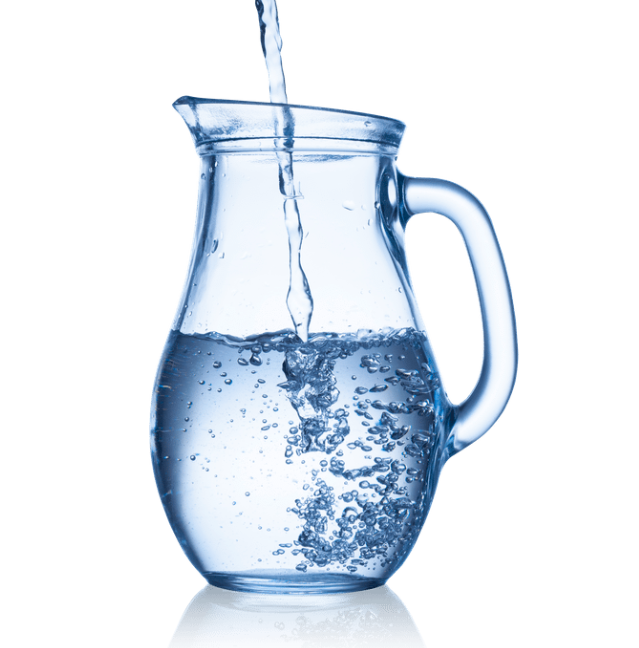 Other factors that can increase the risk of developing a UTI include:
Other factors that can increase the risk of developing a UTI include:
- Poor personal hygiene
- Using a catheter
- Diabetes
- Pregnancy
- Menopause
- Weakened immune system
- Blockages in the urinary tract
In some cases, UTIs can be caused by underlying medical conditions such as kidney or bladder stones, or abnormalities in the urinary tract.
It’s important to seek medical attention if you suspect you have a UTI, as untreated infections can lead to more serious complications such as kidney damage or sepsis. Your doctor may prescribe antibiotics to treat the infection and recommend lifestyle changes to help prevent future UTIs.
How To Cure Cystitis / UTI – Symptoms of Cystitis and UTI
If you have cystitis or a urinary tract infection (UTI), you may experience a range of symptoms. Here are some of the most common symptoms to look out for:
- Pain or discomfort while urinating: This can range from a mild burning sensation to intense pain.
- Frequent urination: You may feel like you need to urinate more often than usual, even if you don’t actually produce much urine.
- Urgency: You may feel a strong urge to urinate, even if you just went to the bathroom.
- Blood in the urine: Your urine may appear pink, red, or brownish in color.
- Cloudy or foul-smelling urine: Your urine may have a strong, unpleasant odor or appear cloudy.
- Pain or pressure in the lower abdomen or back: You may experience discomfort in your pelvic area or lower back.
- Fatigue or weakness: You may feel tired or weak, especially if the infection has spread to your kidneys.
 It’s important to note that not everyone with cystitis or a UTI will experience all of these symptoms. Some people may only have one or two symptoms, while others may have several. Additionally, some people may experience more severe symptoms than others.
It’s important to note that not everyone with cystitis or a UTI will experience all of these symptoms. Some people may only have one or two symptoms, while others may have several. Additionally, some people may experience more severe symptoms than others.
If you think you may have cystitis or a UTI, it’s important to see a healthcare provider for an accurate diagnosis and appropriate treatment. Ignoring the symptoms or delaying treatment can lead to more serious complications, such as kidney infection or sepsis.
Diagnosis of Urinary Tract Infection
If you suspect you have a urinary tract infection (UTI), it is important to seek medical attention promptly. Your healthcare provider will conduct a physical examination and ask about your symptoms, medical history, and any medications you are taking. They may also order some tests to confirm the diagnosis.
Urine Tests
Urine tests are the most common way to diagnose a UTI. Your healthcare provider will ask you to provide a urine sample, which will be sent to a laboratory for analysis. The laboratory will check for the presence of bacteria in your urine. If bacteria are found, your healthcare provider will likely diagnose you with a UTI.
Imaging Tests
In some cases, your healthcare provider may order imaging tests to check for complications or underlying conditions that may be causing your UTI. Imaging tests may include:
- Ultrasound: This test uses sound waves to create images of your bladder and kidneys.
- CT scan: This test uses X-rays and computer technology to create detailed images of your urinary tract.
- MRI: This test uses a magnetic field and radio waves to create detailed images of your urinary tract.
How To Cure Cystitis / UTI
Other Tests
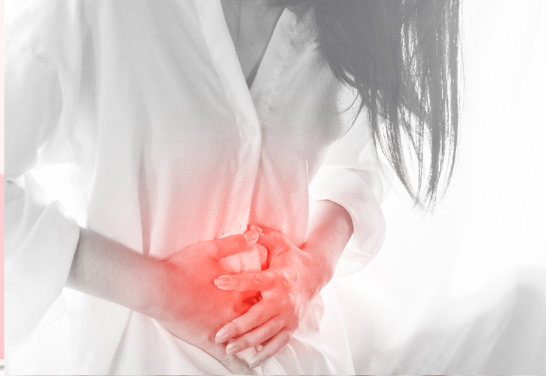 Your healthcare provider may also order other tests to help diagnose your UTI. These tests may include:
Your healthcare provider may also order other tests to help diagnose your UTI. These tests may include:
- Blood tests: These tests can help identify any underlying conditions that may be causing your UTI.
- Cystoscopy: This test involves inserting a small camera into your urethra to examine your bladder and urethra.
In conclusion, if you suspect you have a UTI, it is important to seek medical attention promptly. Your healthcare provider will conduct a physical examination, ask about your symptoms, and may order some tests to confirm the diagnosis. Urine tests are the most common way to diagnose a UTI, but imaging tests and other tests may also be used.
Treatment of Cystitis and UTI:
How To Cure Cystitis / UTI
Home cures for cystitis / UTI do exist, but really, if you suspect that you have a urinary tract infection (UTI), it is essential to seek treatment promptly. To learn more about how to cure cystitis and UTI – here are some treatment options for cystitis and UTI.
Antibiotics for UTI
Antibiotics are the primary treatment for UTI caused by bacteria. Your healthcare provider will prescribe antibiotics sachets based on the type of bacteria found in your urine. The duration of treatment depends on the severity of your infection and your overall health. In many cases, symptoms improve within a few days of taking antibiotics. However, it is crucial to complete the entire course of antibiotics to prevent the infection from returning.
Home Cures for UTI
In addition to antibiotics, there are several home remedies for UTI or cystitis that you can try to alleviate your symptoms and speed up the healing process. Many will bring you almost immediate relief from Cystitis. Some of these remedies include:
- Drinking plenty of water to flush out bacteria from your urinary tract
- Applying a heating pad to your lower abdomen to reduce pain and discomfort
- Taking over-the-counter pain relievers such as ibuprofen or acetaminophen to relieve pain and reduce fever
- Drinking cranberry juice or taking cranberry supplements to prevent bacteria from sticking to the walls of your bladder
It is important to note that home remedies should not be used as a substitute for antibiotics. If your symptoms persist or worsen, you should seek medical attention.
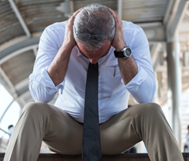 How To Cure Cystitis / UTI in Males
How To Cure Cystitis / UTI in Males
Although cystitis or a UTI are generally regarded as female problems, men can and do suffer severely too!
Men Get UTIs Too!
Generally everything recommended or implied as a treatment or cure for cystitis in women in this article can be applied equally to male sufferers.
UTI Care Plan
If you have recurrent UTIs, your healthcare provider may recommend a UTI care plan. This plan may include:
- Taking low-dose antibiotics for an extended period to prevent recurrent infections
- Drinking plenty of water and urinating frequently to flush out bacteria from your urinary tract
- Avoiding irritants such as bubble baths, scented feminine products, and douches that can irritate your urinary tract
- Wiping from front to back after using the toilet to prevent bacteria from entering your urethra
- Chronic Cystitis treatment antibiotics
By following a UTI care plan, you can reduce your risk of recurrent infections and maintain good urinary tract health.
In summary, if you suspect that you have a UTI, seek medical attention promptly. Antibiotics are the primary treatment for UTI caused by bacteria, and home remedies can help alleviate your symptoms. By following a UTI care plan, you can reduce your risk of recurrent infections and maintain good urinary tract health.
How To Cure Cystitis / UTI: Prevention of Cystitis and UTI
If you have ever experienced the pain and discomfort of a urinary tract infection (UTI) or cystitis, you know how important it is to prevent them from happening again.
Fortunately, there are several things you can do to lower your risk of developing these infections. Some of them may even offer immediate relief for cystitis?
More Tips to help Prevent Cystitis and UTIs:

- Drink plenty of fluids, especially water. Staying hydrated helps dilute your urine and flush out bacteria from your urinary tract before an infection can start.
- Pee after sex. Urinating after sexual activity helps to flush out any bacteria that may have entered your urethra during sex.
- Wipe front to back. Always wipe from front to back after using the toilet to avoid transferring bacteria from your anus to your urethra.
- Take showers instead of baths. Sitting in a bathtub can increase your risk of developing an infection, so it’s best to stick to showers.
- Avoid irritating products. Avoid using douches, powders, or sprays in the genital area, which can irritate your urethra and increase your risk of infection.
- Wear loose-fitting clothing. Tight clothing and underwear can trap moisture and bacteria, increasing your risk of developing an infection.
- Avoid holding your urine. Holding your urine for too long can allow bacteria to multiply in your bladder, increasing your risk of infection.
- Consider cranberry supplements. While the evidence is mixed, some studies suggest that cranberry supplements may help prevent UTIs by inhibiting bacteria from sticking to the bladder wall.
- Practice good hygiene. Wash your hands regularly, especially before and after using the toilet, to prevent the spread of bacteria.
By following these tips, you can help lower your risk of developing cystitis and UTIs. If you do experience symptoms of an infection, such as pain or burning during urination or frequent urination, be sure to see your healthcare provider for treatment.
How To Cure Cystitis / UTI
Frequently Asked Questions
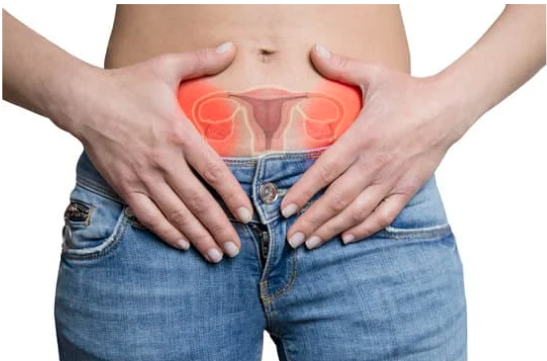
What are the symptoms of a bladder infection in females?
Bladder infection or cystitis can cause painful urination, frequent urination, and a strong urge to urinate. You may also experience lower abdominal pain, cloudy or bloody urine, and a low-grade fever.
What is the best treatment for cystitis?
The best treatment for cystitis depends on the cause of the infection. If it is caused by bacteria, antibiotics are usually prescribed. Drinking plenty of fluids and taking over-the-counter pain relievers can also help alleviate the symptoms. Your doctor will know the best antibiotic for cystitis or a UTI – take his or her advice.
What is the common cause of cystitis urinary tract infection?
The most common cause of cystitis is a bacterial infection that enters the bladder through the urethra. Women are more prone to cystitis due to their shorter urethra, which makes it easier for bacteria to enter the bladder.
Can cystitis turn into a kidney infection?
Yes, if left untreated, cystitis can spread to the kidneys and cause a more severe infection called pyelonephritis. Symptoms of a kidney infection include fever, chills, nausea, vomiting, and severe back pain.
How to get rid of cystitis fast?
Drinking plenty of water and taking over-the-counter pain relievers can help alleviate the symptoms of cystitis. Avoiding irritants like caffeine, alcohol, and spicy foods can also help. However, it is important to see a doctor if the symptoms persist or worsen as untreated cystitis can lead to more severe infections.
What does cystitis look like in urine?
Cystitis can cause cloudy or bloody urine, and you may also notice a strong, foul odor. However, it is important to note that these symptoms can also be caused by other conditions, so it is important to see a doctor for a proper diagnosis.

